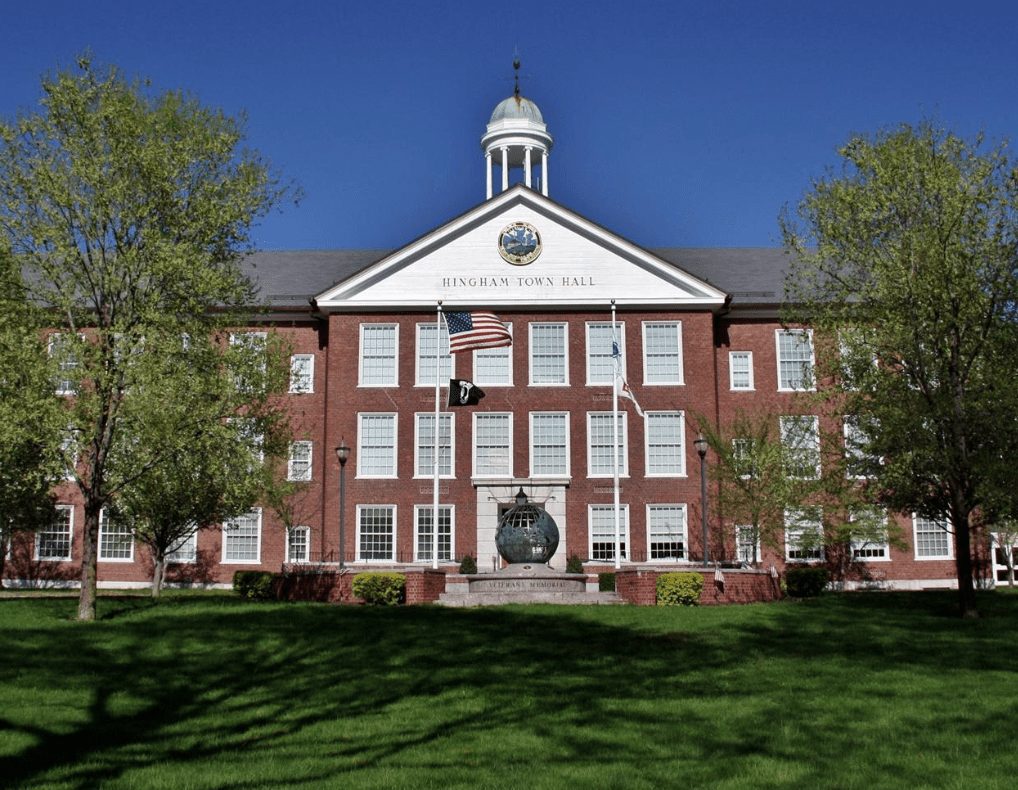
April 27, 2022 By Carol Britton Meyer
Hingham was designated a "green community" in 2018 under the Massachusetts Green Communities Designation and Grant Program, which included agreeing to the goal of reducing municipal energy by at least 20 percent over five years.
The next step -- following the expenditure of the initial grant funds awarded to the town -- was to apply for a grant of up to $200,000 for two LED lighting projects -- one at Hingham High School and the other at Town Hall.
Asst. Town Administrator for Operations Art Robert was happy to report to the Select Board Tuesday night the awarding of two grants totaling $185,475 in support of retrofitting both buildings with LED lighting.
The focus is initially on the Town Hall project, paid for with a $95,870 grant, "consisting of furnishing and installing 510 LED interior lamps and fixtures, including 80 with emergency battery backup," Robert explained.
The $94,475 HHS project includes furnishing and installing 1,267 interior and exterior LED lamps and fixtures.
The projected annual savings at Town Hall is $9,766, with a CO2 emission savings of 21 tons. The expected annual savings for the HHS project once accomplished is $41,292, with CO2 emissions savings of 89 tons.
"These projects will result in increased staff productivity through reduced frequency of lamp changes and will also demonstrate progress in reducing energy costs and greenhouse gas emissions as well as setting the example [for future projects of this kind]," Robert said.
He worked with the Hingham Municipal Lighting Plant to identify potential available rebates related to these projects, which could amount to $8,000 "as part of the overall mix," Robert said. The associated cost to the town might be $1,000 "to get $96,000 of value [for the Town Hall project]," Select Board Chair Joseph Fisher noted.
The Select Board approved an agreement with Your Electrical Solution, Inc. to perform the Town Hall lights replacement.
Looking back, initial designation as a "green community" provides an immediate one-time grant based on available funds, number of applicants, and a grant allocation formula based in part on population and per capita income. Additional grants are available to finance further energy efficiency and renewable energy projects at the local level based on certain criteria



